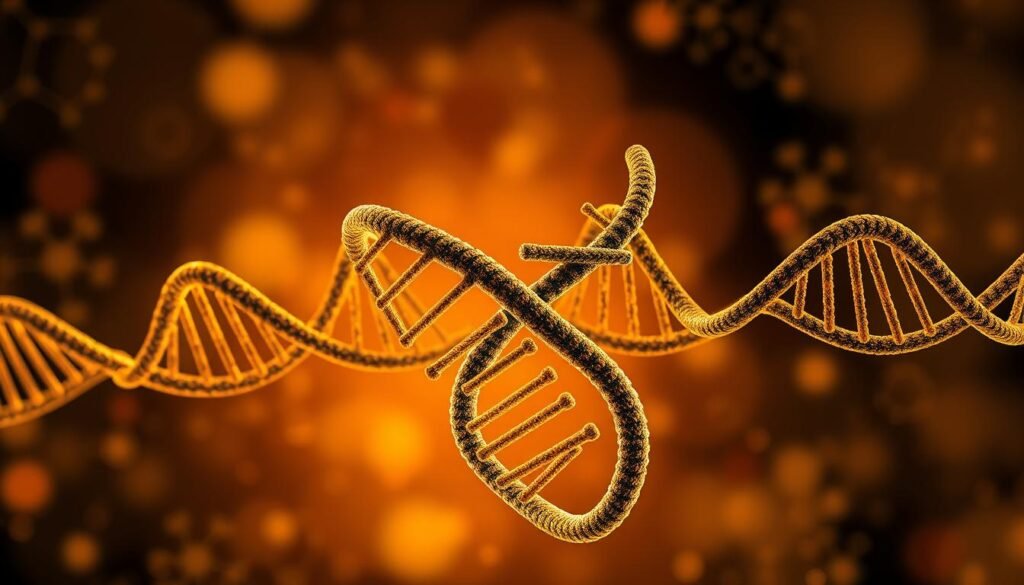For years, I’ve asked myself this question: Why can’t I stop struggling with my weight? It’s a frustrating cycle that many of us face. No matter how hard I try, the scale seems to creep back up, leaving me feeling defeated. This isn’t just a personal battle—it’s a shared experience for millions. Studies show that 95% of individuals who lose weight through dieting regain it within 1 to 5 years1.
What’s even more puzzling is how our bodies seem to resist change. Research reveals that even after significant weight loss, the number of fat cells in our bodies remains stable2. This means that while we might lose weight, our bodies are primed to regain it. It’s not just about willpower—it’s about biology, hormones, and even the environment around us.
In this article, I’ll explore the layers of this complex issue. From the science behind weight struggles to practical strategies that can help, we’ll uncover why this battle feels so relentless. Together, we’ll find ways to navigate this journey with understanding and hope.
Key Takeaways
- Weight struggles are often influenced by biology, not just willpower.
- Studies show that 95% of dieters regain weight within 1 to 5 years1.
- Fat cells remain stable even after significant weight loss2.
- Hormonal imbalances can make weight loss more challenging.
- Practical strategies and understanding can help break the cycle.
My Personal Journey with Weight Struggles
Looking back, my journey with weight struggles began with a simple realization. I was in my early twenties when I first noticed that my energy levels were dropping. I felt tired all the time, and my clothes didn’t fit like they used to. At first, I thought it was just a phase, but soon I realized it was a bigger part of my life than I had imagined.
When It All Began
I tried everything—diets, exercise programs, even cutting out certain foods. But the results were always temporary. I’d lose a few pounds, only to gain them back within months. It felt like my body was working against me. I later learned that this is a common experience, with studies showing that 95% of dieters regain weight within 1 to 5 years3.
One of the hardest parts was the emotional toll. I felt frustrated and defeated, wondering why I couldn’t stick to a plan. I realized that traditional advice—like “eat less, move more”—wasn’t enough. My struggles were tied to deeper issues, like hormonal imbalances and my body’s natural system4.
The Emotional and Physical Toll
The physical effects were just as challenging. My energy levels were low, making it hard to stay active. I tried exercising regularly, but fatigue often got in the way. I also noticed that my sleep quality was poor, which studies show can disrupt hunger hormones and increase appetite5.
Despite the setbacks, every failure taught me something. I learned that weight loss isn’t just about willpower—it’s about understanding your body and finding strategies that work for you. This journey has shaped my perspective and set the stage for exploring the science behind weight struggles in the next section.
The “fat forever” Phenomenon: Uncovering the Science
What if chemicals in our environment are making it harder to lose weight? This question led me to explore the science behind a growing concern: forever chemicals. These substances, like PFOS and PFAS, are found in everyday products and accumulate in our bodies over time. Research shows they disrupt our metabolism, making weight loss a constant challenge6.

Understanding Forever Chemicals and Their Effects
Forever chemicals, such as PFOS and PFAS, are persistent pollutants that don’t break down easily. They mimic fats in the body, tricking our cells into storing more energy than needed. This process can lead to unintentional weight gain, even when a person is actively trying to lose weight6.
Studies reveal that these chemicals block cell receptors and inhibit ATP production, the energy currency of our cells. This disruption slows down metabolism, making it harder to burn calories efficiently6. The result? A frustrating cycle of weight gain despite our best efforts.
How PFOS and PFAS Disrupt Metabolism
PFOS and PFAS interfere with the body’s natural energy production. They substitute fluorine for hydrogen in our cells, altering their function. This change confuses the body’s metabolic system, leading to impaired calorie processing6.
Recent research highlights that the uptake mechanisms for PFOS closely resemble those for essential nutrients. This similarity tricks the body into absorbing harmful chemicals, further disrupting metabolism6. Over time, this can contribute to the broader obesity epidemic.
Understanding these scientific insights helps explain why weight loss can feel like an endless battle. By addressing these hidden factors, we can develop more effective strategies for managing weight and improving health.
Traditional Weight Loss Methods and Their Shortcomings
The traditional approach to weight loss often leaves people feeling stuck and frustrated. For decades, the mantra has been simple: eat less, move more. Yet, this advice rarely leads to lasting results. Studies show that while many diets can help you shed pounds initially, maintaining that loss is a different story7.

Why Diets Often Fail in the Long Run
One of the biggest problems with traditional diets is their focus on restriction. Cutting calories might seem like the right way to go, but it often backfires. When you eat less, your body slows down its metabolism to conserve energy7. This makes it harder to keep losing weight over time.
Another issue is that diets don’t address the root causes of weight gain. Hormonal imbalances, stress, and even the types of food we eat can all play a role. Without tackling these deeper issues, any weight loss is likely to be temporary8.
The Exercise Dilemma: Fatigue and Energy Loss
Exercise is often touted as the key to weight loss, but it’s not a magic solution. While staying active is important, it can also lead to fatigue and burnout. Many people push themselves too hard, only to feel exhausted and discouraged when the scale doesn’t budge7.
Moreover, misleading information about food and exercise can make the problem worse. Inconsistent advice leaves many of us unsure of the best way to approach our health. This confusion often leads to short-term wins but long-term failures8.
These shortcomings highlight the need for a more integrated approach. Instead of focusing solely on eating less or exercising more, we should consider the bigger picture. Addressing factors like hormones, stress, and lifestyle can pave the way for lasting change.
Exploring Hormone Imbalances and Metabolic Barriers
Understanding how hormones influence weight loss has been a game-changer for me. Hormones play a critical role in regulating metabolism, energy levels, and even appetite. When these hormones are out of balance, it can create significant barriers to achieving and maintaining a healthy weight9.

The Crucial Role of Thyroid Function
The thyroid gland is often called the body’s thermostat. It regulates metabolism by producing hormones that control how quickly your body burns calories. When thyroid function is inadequate, it can lead to a slower metabolic rate and greater fat accumulation9.
Lab studies have shown that insufficient thyroid hormones can reduce energy levels and make weight loss nearly impossible. This issue is more common than many realize, affecting millions of people worldwide10.
Insights on Insulin, Leptin, and Cortisol Resistance
Insulin and leptin are two hormones that directly impact weight. Insulin helps regulate blood sugar levels, while leptin signals fullness to the brain. When resistance to these hormones occurs, it can lead to overeating and weight gain9.
Cortisol, the stress hormone, also plays a role. High cortisol levels can increase appetite and promote fat storage, especially around the abdomen. This creates a vicious cycle that’s hard to break10.
Systematic lab testing can reveal these imbalances, providing a clear path to addressing the root causes of weight struggles. This approach goes beyond dieting, focusing on a comprehensive change in how we manage our health9.
- Thyroid function is essential for maintaining a healthy metabolism.
- Insulin and leptin resistance can lead to overeating and weight gain.
- Cortisol levels impact appetite and fat storage.
- Lab tests are crucial for diagnosing these issues and tailoring effective interventions.
Addressing these metabolic barriers is not just about diet or exercise—it’s about understanding the complex interplay of hormones and making informed changes to improve overall health and quality of life10.
Psychological and Environmental Factors in Weight Gain
Overcoming weight challenges often starts with understanding the mental and environmental factors at play. For many, long-held beliefs and external influences create a state where weight gain persists despite efforts to change. These factors are subtle yet powerful, shaping how we approach our health and well-being.

Breaking Free from Self-Limiting Beliefs
I’ve struggled with self-doubt, wondering if I could ever achieve my goals. External advice often fell short, failing to address my unique challenges. For instance, as a woman, I felt pressure to meet societal expectations, which added another layer of complexity to managing my weight11.
Research shows that psychological barriers, like negative self-talk, can hinder progress. These mental blocks often stem from past experiences or cultural norms. Addressing them requires more than just willpower—it demands a shift in mindset12.
The Role of Environment in Weight Management
Our surroundings play a significant role in shaping our habits. From home settings to social circles, the environment can subconsciously influence dietary choices and overall metabolism. For example, living in a household with unhealthy snacks readily available can make it harder to stick to a plan13.
I’ve found that small changes, like reorganizing my kitchen or seeking supportive friends, can make a big difference. These adjustments help convert environmental triggers into supportive factors, creating a more conducive space for success.
Strategies for Lasting Change
Breaking free from self-limiting beliefs requires actionable strategies. Here are something that worked for me:
- Reframe negative thoughts: Replace self-criticism with positive affirmations.
- Seek professional guidance: A patient-centered approach can address individual needs.
- Create a supportive environment: Surround yourself with people and spaces that encourage healthy habits.
| Strategy | Impact |
|---|---|
| Reframing Thoughts | Reduces self-doubt and builds confidence |
| Professional Guidance | Provides tailored solutions for unique challenges |
| Supportive Environment | Encourages consistency and accountability |
By addressing both psychological and environmental factors, we can create a holistic approach to weight management. This mindset shift, combined with physical measures, paves the way for lasting solutions11.
Integrative Approaches to Overcoming Weight Challenges
Finding a sustainable way to manage weight has been a journey of trial and error for me. Traditional methods often fell short, leaving me frustrated and stuck. Over time, I discovered that success comes from addressing all elements—physical, mental, and biochemical—in a coordinated process.

Personalized Strategies for Lasting Change
One of the most important lessons I learned is that there’s no one-size-fits-all solution. What works for one person might not work for another. This is why personalized strategies are key. For example, studies show that high-protein diets can reduce appetite and increase fullness, making it easier to stick to a plan14.
Mindful eating is another powerful tool. By paying attention to hunger cues and eating slowly, I’ve been able to better understand my body’s needs. This approach aligns the brain’s understanding of hunger with proper nutritional order, transforming the weight loss journey14.
Combining Diet, Exercise, and Medical Guidance
Integrative approaches combine tailored dietary plans with structured exercise regimes and, when needed, medical support. For instance, resistance training can help prevent muscle loss during dieting, which is a common side effect of weight loss efforts14.
Medical guidance is also crucial. Lab tests can reveal hormonal imbalances or metabolic issues that might be hindering progress. Addressing these underlying factors can make a significant difference in achieving long-term success.
- Reframe your approach: Focus on sustainable habits rather than quick fixes.
- Seek professional help: A healthcare provider can offer tailored solutions.
- Stay consistent: Small, consistent changes lead to lasting results.
| Strategy | Impact |
|---|---|
| High-Protein Diet | Reduces appetite and increases fullness |
| Mindful Eating | Aligns hunger cues with nutritional needs |
| Resistance Training | Prevents muscle loss during dieting |
By combining these strategies, I’ve been able to create a self-sustaining system for long-term success. It’s not just about following a plan—it’s about testing and tweaking the approach to suit your unique needs. With persistence, the integrative approach evolves into a lifestyle that supports healthier choices.
Conclusion
Achieving a healthy weight isn’t just about willpower—it’s a complex interplay of factors. Traditional methods often fail because they overlook the scientific and personal elements at play. Understanding these factors, from hormonal imbalances to psychological barriers, is key to lasting success15.
The market is flooded with quick fixes, but sustainable change requires a tailored approach. Continuous testing and adapting strategies are essential. For instance, studies show that high-protein diets and resistance training can significantly improve outcomes16.
For both man and woman, achieving a normal weight is a process that demands patience and persistence. By addressing the root causes and embracing a multifactorial approach, lasting resolution is possible. Stay hopeful, and remember: small, consistent changes lead to big results.
FAQ
Why do diets often fail in the long run?
How do PFOS and PFAS affect my metabolism?
What role does thyroid function play in weight management?
Can exercise alone help me lose weight?
How do self-limiting beliefs impact weight gain?
What are integrative approaches to weight loss?
How do hormones like insulin and cortisol affect weight?
What are forever chemicals, and where are they found?
Source Links
- https://bonnielefrak.com/why-we-dont-lose-weight-and-keep-it-off-forever/
- https://www.drchristophernewman.com/blog/are-fat-cells-forever/
- https://www.hopkinsmedicine.org/health/wellness-and-prevention/maintaining-weight-loss
- https://www.webmd.com/obesity/ss/slideshow-obesity-weight-loss-tips
- https://wp.nyu.edu/discovers/2025/02/20/lose-10-pounds-in-a-week-my-personal-journey-and-what-you-need-to-know/
- https://pmc.ncbi.nlm.nih.gov/articles/PMC9541318/
- https://www.npr.org/sections/thesalt/2016/06/07/481094825/a-neuroscientist-tackles-why-diets-make-us-fat
- https://pmc.ncbi.nlm.nih.gov/articles/PMC9294402/
- https://pmc.ncbi.nlm.nih.gov/articles/PMC6559802/
- https://health.clevelandclinic.org/why-it-really-is-harder-for-women-to-lose-weight-and-what-to-do
- https://pmc.ncbi.nlm.nih.gov/articles/PMC5764193/
- https://www.webmd.com/obesity/features/are-you-fated-be-fat
- https://pmc.ncbi.nlm.nih.gov/articles/PMC5139007/
- https://www.healthline.com/nutrition/30-ways-to-lose-weight-naturally
- https://www.restartmed.com/destined-to-be-overweight-forever/?srsltid=AfmBOooptBBJ7ywLJKb6FYk3QT8SFIrlbzI8GKHVZdGPsngvK3L2-jH4
- https://triagemethod.com/how-to-lose-fat-and-keep-it-off-forever/





